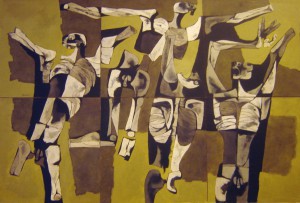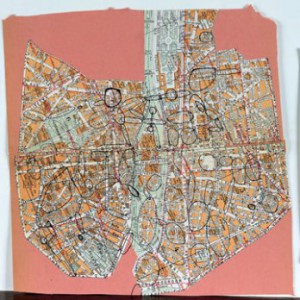Monday, November 18th, 2013
 will be presenting his work-in -progress, entitled “Is, Ought and Disenchantment”. As always, the presentation will be in room 303 Pavilion Parade, 1-2pm.
will be presenting his work-in -progress, entitled “Is, Ought and Disenchantment”. As always, the presentation will be in room 303 Pavilion Parade, 1-2pm.
The lack of a categorical material division between human and non-human worlds is often understood in terms dependency and embeddedness. The idea here is that human beings are necessarily embedded in a bio-physical environment upon which we are dependant. The problem for would-be non-anthropocentric ethicists is that it is argued that the ontological fact of humanity’s bio-embeddedness and inextricable interconnectedness the rest of nature does not logically imply that we ought or ought not to care about the so-called “natural world”. The idea is that our dependency upon, and connectedness to, the biosphere does not provide the basis for normative claims about how we ought to orient ourselves to the world given these facts. For environmental politics, the problem is two-fold. In the first place, the normative content of those political and ethical theories that help us decide how we ought live cannot be deduced from natural facts about our existence; such content must be found somewhere else. Secondly, the question of how nature should be valued cannot be answered by discovering value in nature itself.
My aim is to show that the necessary philosophical background for these problems is the notion of disenchanted nature. The idea is that the world revealed by the natural sciences is a world free from properties such as purpose, meaning, agency and value. Hence, this world could never provide the values and principles we’re after. Of course the problem is that given that human beings are no less a part of nature than is anything else, the rising tide of disenchantment threatens to wash away that last bastion of meaning, purpose, value and agency – us. One well-known philosophic response to the problem of disenchantment is some or other form of dualism. However, dualistic responses trade one set of philosophic problems for another. Drawing on Wilfred Sellar’s notion of the manifest and scientific images of mankind, I consider two contrasting responses to the problems that emerge from the dualist solution to the quandary of disenchantment”.
